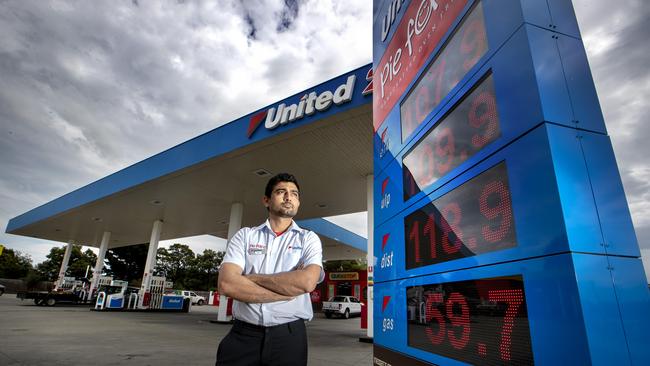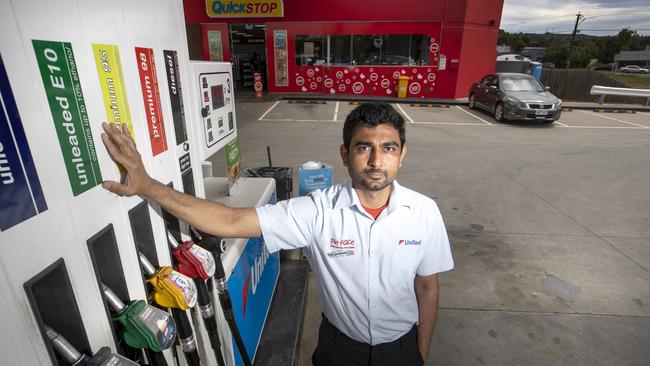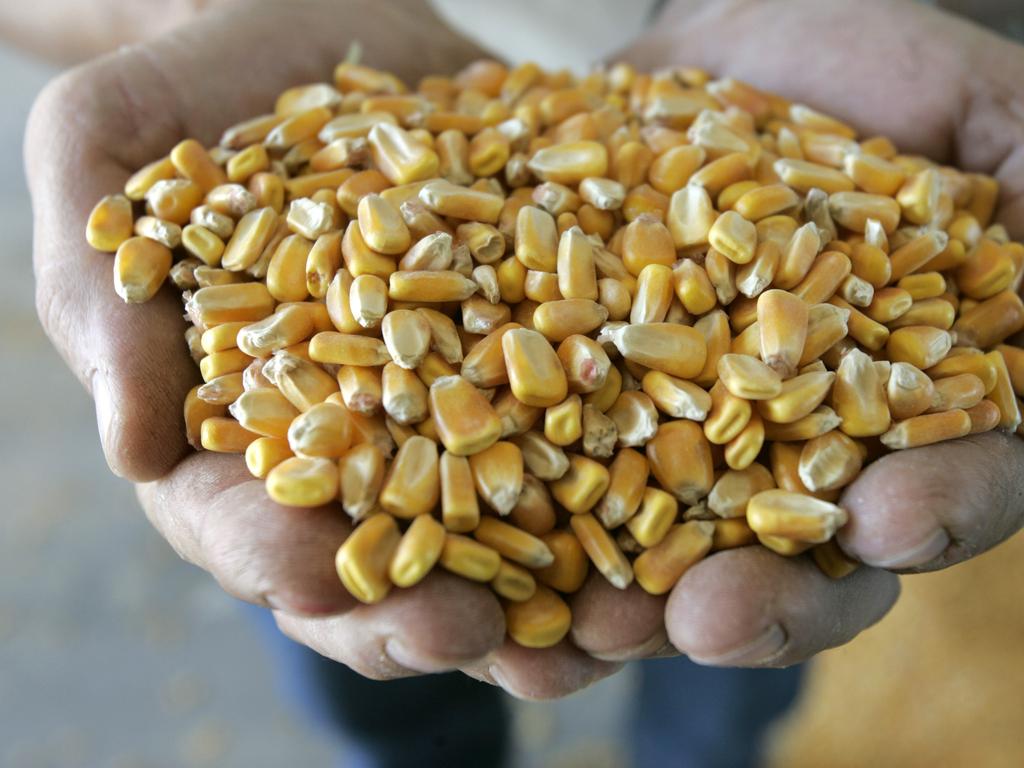Petrol giant accused of misleading motorists on fuel
An Australian petrol giant is facing a federal government investigation after being accused of duping motorists.

Australian petrol giant United Petroleum is facing a federal government investigation after being accused of duping motorists by selling E10 petrol as a 10 per cent ethanol product when in some cases it contains 1 per cent or less ethanol.
An investigation by The Weekend Australian has revealed that United, Australia’s largest independent fuel distributor, was selling the misleadingly labelled E10 fuel last month in a number of outlets.
The Australian Competition & Consumer Commission is considering a complaint from Sydney lawyer Stewart Levitt of Levitt Robinson on behalf of United service station franchisees who are worried they may unwittingly be breaking the law.
On Friday, Energy Minister Angus Taylor announced that his department and the National Measurement Institute were also looking into the complaint to determine any potential breach of the fuel standards legislation.
“These reports are concerning,” Mr Taylor said.
“It is important that consumers are not being misled and that they are getting what they pay for at the bowser.”
Mr Taylor said the NMI would monitor the quantity of ethanol across unleaded fuels to help determine the veracity of the complaint.

Mr Levitt has accused United of misleading and deceptive conduct because any consumer would reasonably and correctly expect 10 per cent ethanol in E10.
“The franchisees are in an invidious position because it’s an offence to sell petrol as having certain qualities when it has other qualities,” Mr Levitt said.
He said he was alerted to the problem by one of his clients, Jigar Patel, who owns a United service station franchise in Melbourne and had been tipped off by a tanker driver that the fuel he was delivering might contain very little ethanol.
The legal minimum ethanol content for E10 is 1 per cent.
United had claimed on its website that ethanol was “added at 10 per cent to improve unleaded petrol”.
However, the words “at 10 per cent’’ no longer appeared after inquiries this week.
In tests commissioned by Mr Levitt in early September, E10 was bought from five randomly chosen United outlets in Sydney.
All the samples were tested at the Mark Wainwright Analytical Centre at the University of NSW and found to contain less than 1 per cent ethanol “and were therefore not genuine E10 fuel”.
Senior UNSW chemist Terry Flynn, who analysed the samples, told The Weekend Australian: “The gas chromatography tests are absolutely reliable — there is no margin of error.”
A further three samples from United outlets around Sydney were tested by Mr Flynn and, once again, each sample contained less than 1 per cent ethanol.
Separate tests were conducted by another lab — Fuel Screening Australia — on E10 samples from another five United service stations in NSW, five in Victoria and five from Queensland using infra-red spectroscopy, another technique that identifies the presence of ethanol in petrol. The ethanol content measured was in all cases around 1 per cent or less, although infra-red spectroscopy is indicative rather than definitive.
In NSW, the Biofuels Act defines E10 as containing between 9 per cent and 10 per cent ethanol. Other states do not prescribe the minimum requirement.
Like other petrol companies, United’s bowsers bear signage that E10 “contains up to 10 per cent ethanol”.
While Mr Levitt concedes this may mean less than 10 per cent, “the phrase can’t be stretched to include circumstances where negligible ethanol is included”.
United controls 10 per cent of the retail petrol market in Australia with more than 450 service stations around the country.
The company is owned by Melbourne billionaires Avi Silver and Eddie Hirsch, who debuted on this year’s edition of The List: Australia’s Richest 250 with a combined wealth of $3.5bn.
There is no suggestion Mr Silver, Mr Hirsch or other senior executives had any involvement in, or knowledge of, any misconduct.
A United spokesman said all its fuel met or exceeded Australian Fuel Quality Standards.
“Given the significant amount of pre-existing and regular testing, United Petroleum are sceptical of any unidentified third-party testing”, company spokesman David Szymczack said.
“Under the Australian Fuel Standards, the standard for ethanol blended fuel is set at 1 per cent,” he said.
“The level of ethanol at any point in time is driven by supply constraints.”
The advantages of ethanol, as touted by United in its advertising, include improved engine performance, cleaning the car’s fuel system and massively reducing harmful exhaust emissions.
The company urges motorists to switch to United E10 to support farmers and industry in Queensland, and to create new jobs.
The company boasts that its E10 petrol is made locally in Queensland with ethanol from the United Dalby Bio-Refinery, Australia’s first grain-to-ethanol facility, converting nearly 200,000 metric tonnes of sorghum into 76 million litres of ethanol.
However, the Dalby refinery shut down at the beginning of the year, reopened briefly to produce hand sanitiser, then closed indefinitely in August.
Mr Szymczack said most of United’s ethanol was produced at Dalby and “continues to be stored at terminals around Australia”.
Generous excise concessions can be claimed on the ethanol component of fuel sold by retailers. Fuel-grade ethanol is taxed at 15.29c a litre, while unleaded petrol is taxed at 46.53c a litre.
United Petroleum was founded in 1993 in South Australia, and quickly expanded to the rest of the country.
Franchisees and commission agents run the petrol stations, with franchisees paying an initial fee to United of more than $450,000. United then provides the fuel and pays franchisees a commission on all fuel sold.
A number of United franchisees have recently launched legal action against the company, claiming they were unfairly forced out of their businesses after struggling to make a profit.
The company is no stranger to dramas, with a failed $1bn stockmarket float in 2016, followed by a failed legal case against their own lawyers Herbert Smith Freehills.
In a scathing judgment, Victorian Supreme Court judge James Elliott said United’s case was “devoid of merit” and criticised Mr Silver for making “serious and unwarranted threats” against a former employee after learning he was to give evidence against the company.
The Australian’s NSW editor Stephen Rice invites readers who may know more to get in touch via secure email: stephenrice1@protonmail.com








To join the conversation, please log in. Don't have an account? Register
Join the conversation, you are commenting as Logout